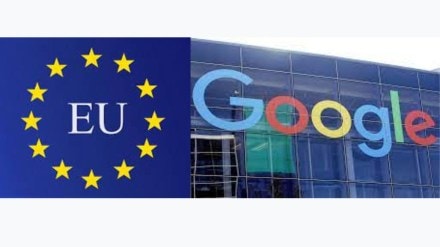The European Commission believes that the only way to blunt the anti-trust effect of Google’s adtech heft is for the tech giant to divest a part of its advertising business. It has charged Google with favouring its own adtech services to the detriment of competing providers and advertisers. Here’s a look at the issue (compiled from the EC website and other sources)
Google’s ad-tech business
Google’s main source of revenue is online advertising: (i) it sells ad space on its own websites and apps; and (ii) it intermediates between advertisers and publishers (third-party websites and apps) that can supply such space.
Advertisers and publishers rely on the adtech industry for the placement of real-time ads not linked to a search query, such as banner ads in news websites. The industry provides three tools: (i) publisher ad servers for publishers to manage ad space on their websites and apps; (ii) ad buying tools for advertisers to manage automated ad campaigns; and (iii) ad exchanges for the two to meet and buy and sell ads. Google operates (i) two ad buying tools (Google Ads, DV 360); (ii) a publisher ad server (DoubleClick For Publishers, or DFP); and (iii) an ad exchange, “AdX”.
The EC’s key charges
The EC has taken a preliminary view that Google breached EU antitrust rules by distorting adtech. It says Google is dominant in the European Economic Area-wide markets: (i) for publisher ad servers with its service ‘DFP’; and (ii) for programmatic ad buying tools for the open web with its services ‘Google Ads’ and ‘DV360′.
The EC preliminarily finds that, since at least 2014, Google abused its dominant positions by favouring its own ad exchange AdX in the ad selection auction run by its dominant publisher ad server DFP by, for example, informing AdX in advance of the value of the best bid from competitors, in order to beat this and win the auction.
Google also favoured AdX in the way its ad buying tools Google Ads and DV360 place bids on ad exchanges. For example, Google Ads was avoiding competing ad exchanges and mainly placing bids on AdX, thus making it the most attractive ad exchange.
Related EC observations
The EC is concerned Google’s alleged intentional conduct to give AdX competitive advantage may have foreclosed rival ad exchanges. This would have reinforced Google’s AdX central role in the adtech supply chain and Google’s ability to charge a high fee for its service. If confirmed, this would infringe Article 102 of the Treaty on the Functioning of the European Union that prohibits the abuse of dominant position.
The EC’s believes a behavioural remedy is unlikely to prevent Google from continuing with such self-preferring conduct or engaging in new ones. Google is dominant on both sides of the market—with its publisher ad server and ad buying tools—and operates the largest ad exchange. This is why EC believes Google may have to shed a part of its adtech business to address anti-trust concerns. However, the charges don’t prejudge the probe launched on June 22, 2021, the EC says.
Where does Google go from here, what it has said, and the reaction of complainants
A Statement of Objections is just a formal step in the probe. The parties concerned can examine the documents in the EC’s probe file, reply in writing and request an oral hearing to present their comments on the case before representatives of the Commission and national competition authorities. If the Commission concludes, after the company has exercised its rights of defence, that there is sufficient evidence of an infringement,
It can adopt a decision prohibiting the conduct—through any behavioural or structural remedies which are proportionate to the infringement—and imposing a fine of up to 10% of the company’s annual worldwide turnover. So, Google has a few months to respond, and exhausting all the defence options could take a fair bit of time.
But, in the interim, the company has responded to the charges, expressing its disagreement with these. “The Commission’s investigation focuses on a narrow aspect of our advertising business and is not new. We disagree with the EC’s view,” Dan Taylor, Google’s vice president of global ads, said in a statement. The European Publishers Council that had filed a complaint before the Commission in 2022 has welcomed the charges.
